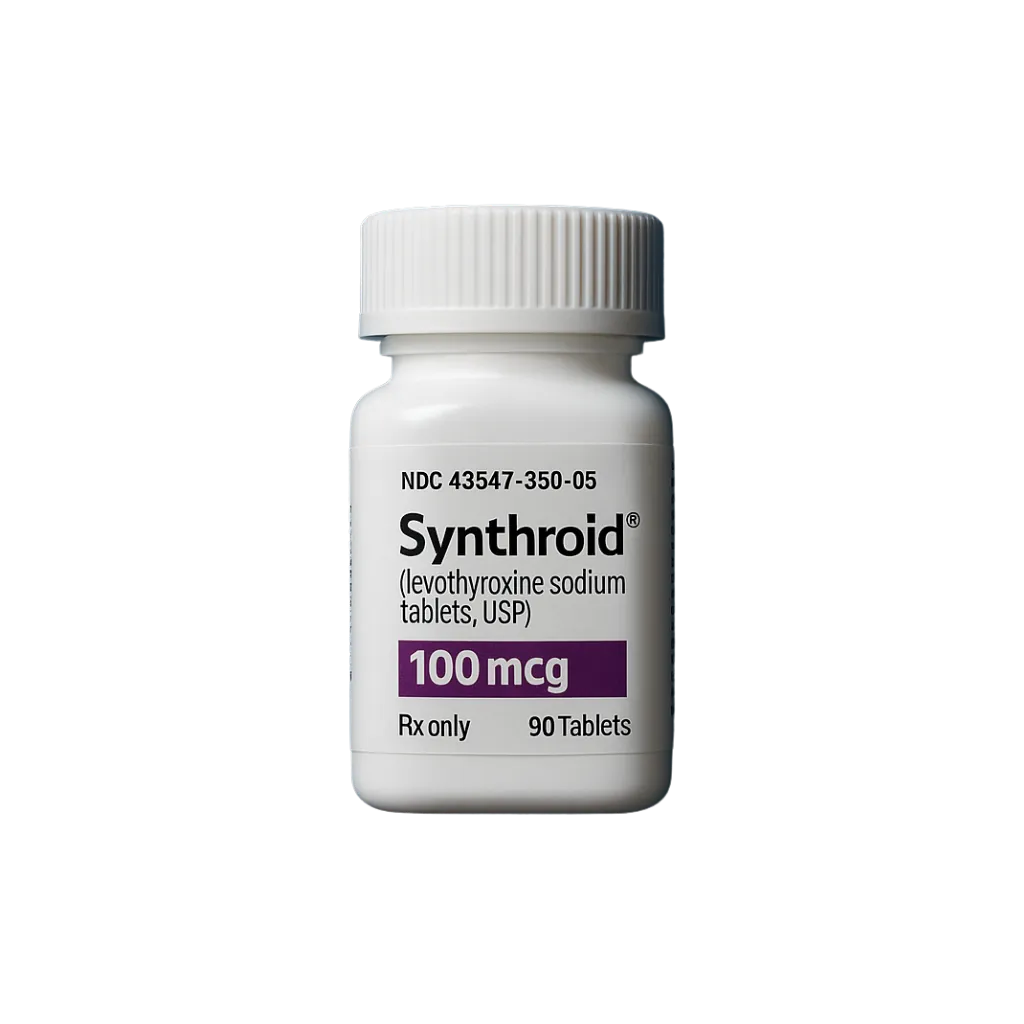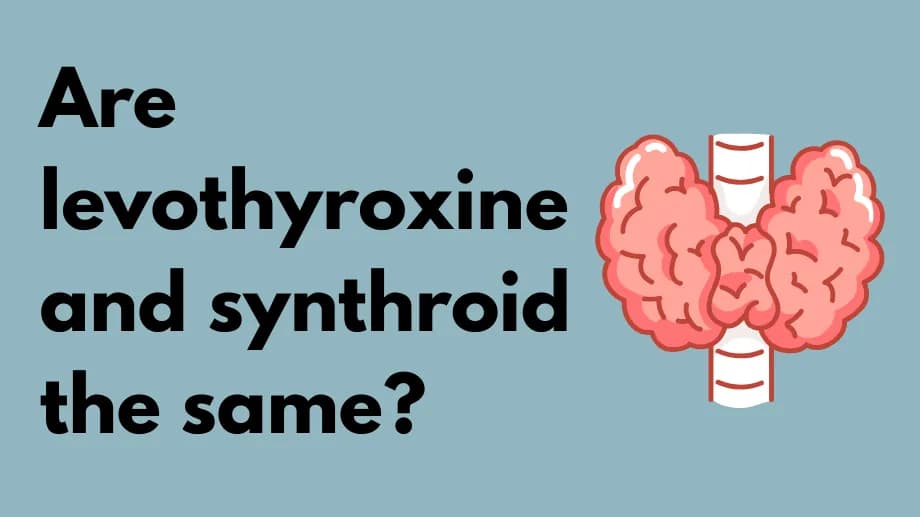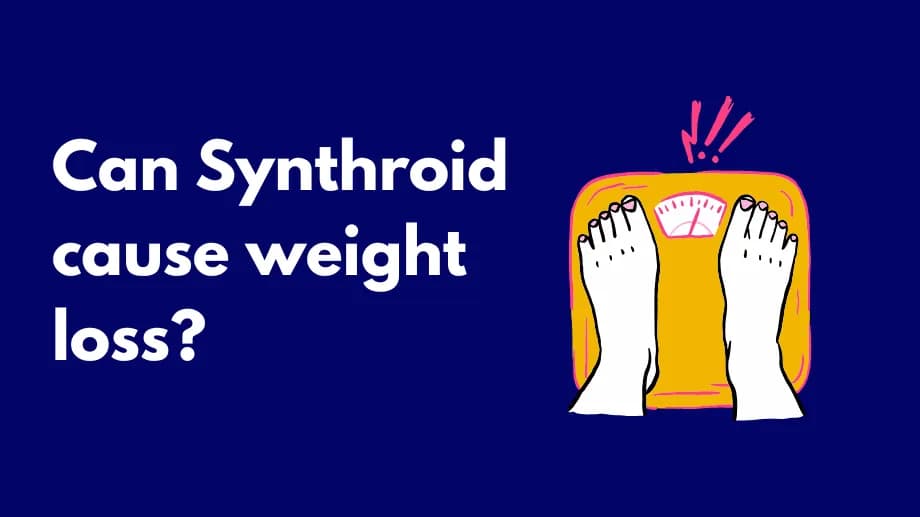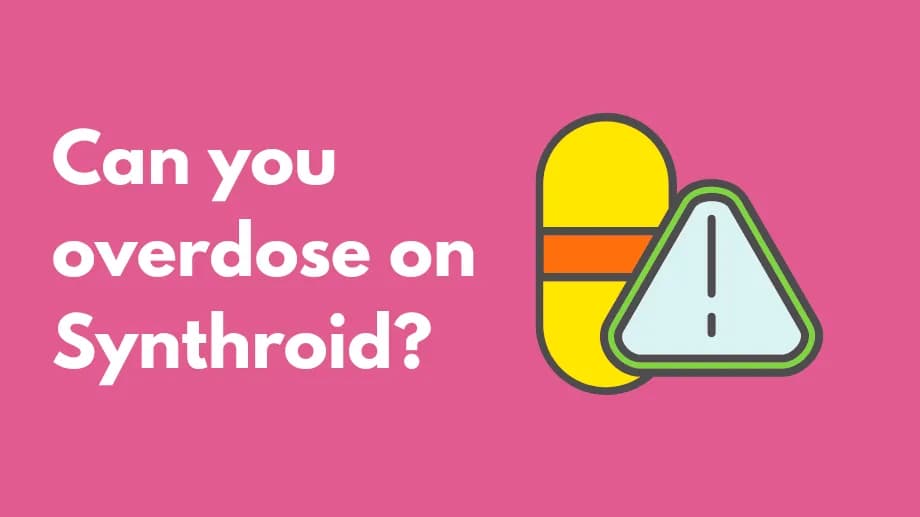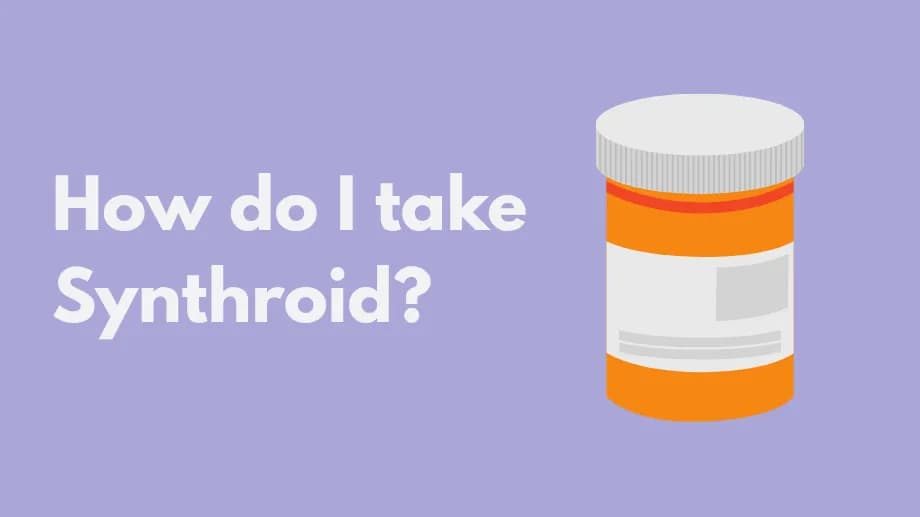Can you overdose on Synthroid?
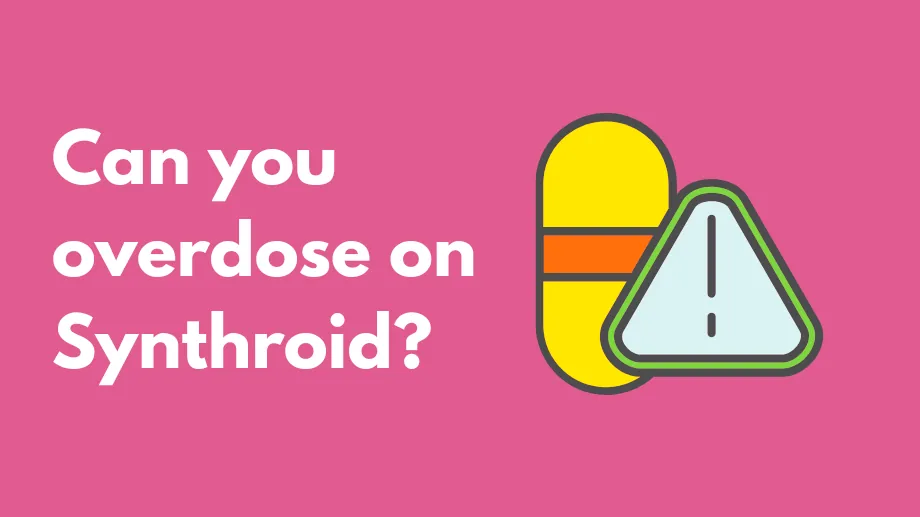
Synthroid is a synthetic thyroid hormone used to treat hypothyroidism and certain thyroid cancers. Correct dosing, timing, and monitoring help maintain stable thyroid levels and avoid complications.
How to Take Synthroid
- Take once daily on an empty stomach, 30–60 minutes before breakfast.
- Use only water; avoid coffee, juice, or other beverages until after your first meal.
- If you miss a dose, take it as soon as you remember unless it is close to the next scheduled dose. Do not double up.
Interactions and Timing
Separate Synthroid from these by at least 4 hours:
- Calcium or iron supplements
- Antacids containing aluminum, magnesium, or calcium
- Cholesterol‑lowering agents (cholestyramine, colesevelam, colestipol)
- Sucralfate, sevelamer, lanthanum
- Proton pump inhibitors and simethicone
- High‑fiber or soy‑based foods and formulas
- Biotin (interferes with lab tests)
Side Effects
Common (from excessive dosing)
- Headache
- Palpitations or fast heartbeat
- Anxiety, tremors, insomnia
- Nausea or vomiting
- Weight changes, hair thinning
Serious (seek immediate help)
- Chest pain or difficulty breathing
- Severe allergic reactions (hives, swelling of face or throat)
- Signs of heart failure (swollen ankles, extreme fatigue)
Monitoring and Dose Adjustments
Initial doses are based on age, weight, and cardiac status. Adjust by 12.5–25 mcg every 4–8 weeks to reach target TSH. Older adults and cardiac patients start low and titrate slowly.
Can Synthroid Cause Weight Loss?
Hypothyroidism often causes weight gain due to fluid retention. Restoring thyroid hormone with Synthroid can lead to modest weight loss—mostly water weight—once the dose is optimized, typically noticeable at 3–6 months. Synthroid is not approved for obesity or routine weight loss; excessive dosing can be dangerous.
Shop Medications
Can You Overdose on Synthroid?
An overdose is rare but may occur accidentally, especially in children. Symptoms resemble hyperthyroidism and can range from mild to life-threatening. They may not appear until days after ingestion.
Signs and Symptoms of Overdose
- Arrhythmias, palpitations, rapid heartbeat
- Anxiety, agitation, tremors
- Confusion, disorientation
- Chest pain, high blood pressure
- Muscle weakness
- Seizures, cerebral embolism, coma (severe cases)
What to Do
If you suspect overdose, contact your healthcare provider for thyroid function tests (TSH, T4, T3). Call Poison Control at 800‑222‑1222 or go to the nearest emergency department if severe symptoms occur.
Causes of Overdose
- Prescription errors or dose changes without monitoring
- Switching generic manufacturers leading to potency differences
- Drug or supplement interactions that alter absorption
- Increased requirements during pregnancy or certain illnesses
Recommended Dosage
Dosing is individualized. Start low and adjust based on lab results and clinical response. Typical adjustments every 4–8 weeks prevent overmedication.
What Your Provider Needs to Know
- Adrenal gland disorders
- Thyrotoxicosis or thyroid nodules
- Cardiac disease or history of arrhythmias
- Diabetes, osteoporosis, pituitary or kidney disease
- Pregnancy or breastfeeding
Sources
- American Thyroid Association guidelines, 2014
- Liwanpo L., et al. Conditions and drugs interfering with thyroxine absorption, 2009
- Glob J Health Sci. 2015;8(4):227–33
- Clin Pediatr Endocrinol. 2017;26(3):171–175
- Ann Med Surg. 2020;59:234–236
- FDA Levothyroxine label, 2024
- Adv Ther. 2019;36(1):30–46

